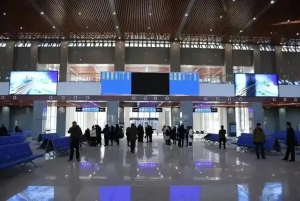China Customs Declaration
hen visiting China, what should I declare at the customs
At the customs, the items to be declared mainly include the following categories:
Currency: If the amount of currency carried exceeds the specified limit, it is required to declare. The specific quota may vary according to countries and regions. Those carrying foreign currency notes not exceeding 5000 US dollars equivalent out of China do not need to apply for Carrying Permit , will be released by the customs. Carrying foreign currency in cash amounts from the equivalent of US $5,000 to US $10,000 ( including US $10,000) .
Valuables: such as jewelry, gold and silver jewelry, watches, etc., if their value is higher, they also need to be declared.
Travel supplies: including video cameras, cameras, portable computers and other electronic equipment, as well as high-end Musical Instruments.

Prohibited or restricted items: such as items prohibited by customs, or items requiring special permission to enter the country, such as animals and plants and their products, meat, fresh fruit, etc.
The declaration form shall be filled in truthfully, including the name, quantity, value and other information of the item, and provide relevant supporting documents.
For items that you are unsure whether to declare, it is recommended to consult the customs staff.
If the items carried are duty-free, they also need to be declared to the customs to avoid unnecessary trouble.
In terms of legal basis, Articles 2 and 9 of the Customs Law of the People’s Republic of China stipulate the duties and rights of the Customs, as well as matters such as declaration and tax payment of imported and exported goods and articles. Therefore, when passing the customs, we should abide by the relevant laws and regulations, and truthfully declare the items carried in order to facilitate customs supervision and inspection. Laws and regulations
Specific declaration requirements and procedures may vary by country, region and customs policy. Before traveling, it is recommended to consult the customs regulations of the relevant country or region, or consult the local customs or relevant agencies.